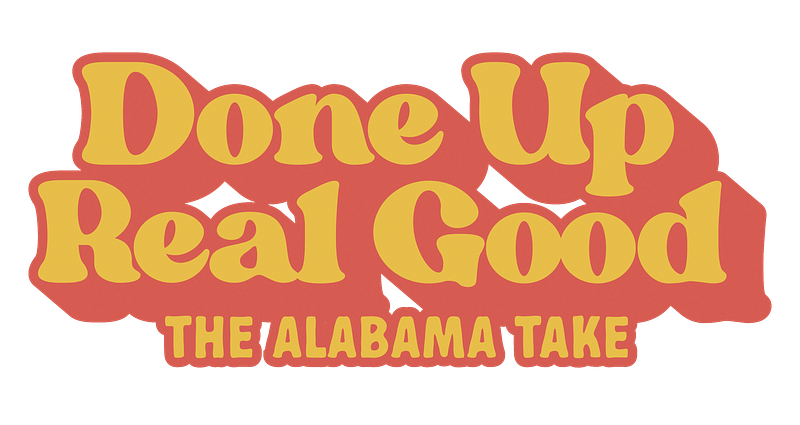
 Season Two, Episode Nine: "Amalgamation and Capital" Note: each writing will spoil the episode in review but will not discuss any future episodes. If it wasn't already apparent that Deadwood can certainly be read as an analogy for monopolies, corporations, and capitalism as a whole, then the scene between Charlie Utter, Seth Bullock, Mose Manuel, and Frances Wolcott sews all of those notions altogether. The scene occurs when Seth and Charlie go to the Bella Union, Wolcott's base of operations, in order to question Mose Manuel on his brother's untimely death, which happened in the previous episode by Mose's hand. Mose, of course, claims otherwise. A self-inflicted gunshot wound to his own stomach, Mose says of his dead brother. It's known, though, that Mose benefited heavily from the death as he immediately sold his and his brother's gold claim to Wolcott for $200,000. When Wolcott interrupts the interrogation of Mose, Charlie is stirred to yell, "It's all amalgamation and capital to you, ain't it, Wolcott?!" Charlie doesn't know that he's somewhat quoting David Hume, the Scotish philosopher. (He only knows someone said it to Wild Bill in a reference to the changes of the world.) Wolcott, eager to get the intellectual upper hand -- as he cannot get the physical one on Charlie -- is quick to point it out to him as well as reference Adam Smith and Karl Marx. With little to go on than speculation, Charlie and Seth are forced to leave. Mose, however, gets his punishment from Cy Tolliver's cappers as he demands all of his gambling money back from the Bella Union. Elsewhere, E.B. is back in action, though still suffering from a toothache. Al instantly employs him to spy on any telegraphs coming into Deadwood. This makes for E.B. going back to his annoying self and hounding Mr. Blazanov, the operator. Al also reads the paper and finds out that Merrick overdid it with the rumors by mentioning statehood by the United States. Al worries that the people of the camp may "smell a rat," so he scolds Merrick and lets him know to scale it back in the future so that they may have the upper hand on those coming for Deadwood and its money. It's here that E.B. interrupts with news that Miss Isringhausen is sending and receiving telegraphs. Al needs to know much more as he's put two and two together: she knows that he's gone to Alma. Al lets Alice Isringhausen know that no matter what, he's not going against the interests of the camp, returning to the theme of one being a part of a whole, and that she best leave before he ends up killing her. She hesitantly agrees as long as she signs the purposed documents with Sheriff Bullock as witness and gets him to escort her to safety. It seems as though Al Swearengen has avoided the Pinkertons once again. (In a great final insult, Al "reads" a "telegraph" and concludes it with "Pinkerton shitheel.") In other monetary affairs, the safe for the bank is now installed and while there for lunch, Martha Bullock recommends that Alma Garret be present as she is the major investor of the new bank. It raises suspicion amongst Trixie and the rest, but it seems as though Martha wants bygones to be bygone so that she can move forward with teaching the children of the camp and that Alma can move forward as the owner of the bank. Martha's observation of Seth and William from the opening scene likely changed her temperament towards Seth as it was a display of sincere caring as he reached out to his adopted son for stories of his father. In another kind gesture, William is recruited by Tom Nuttall to help calibrate his large bicycle's handlebars. Tom noted William's previous amazement at the contraption and he even offers to let William ride in unison with him. It's here that the climatic scene unfolds. Fitting with the motif of money, General Fields demands Hosteler castrate a wild horse in order to sell it sooner rather than later. It's a costly decision. Hosteler worries the moon isn't right, but goes forth with the surgery. The horse gets loose and in a series of shots reminiscent of Nuttall's previous conquest of the Bella Union gap, viewers get the reaction of the horse's escape as it collides violently into William and Steve. (Steve, by the way, was last seen being captured by Hosteler and General Fields for attempting to get back at Bullock via Bullock's horse.) The horse, though, is emblematic of capitalism: untamed, wild, without control once it is running despite efforts to geld it. That final shot contrasts that sweet, opening scene with Seth and William: now William lays in the alley with an injured Steve. Amalgamation and capital control the day. It is at the risk of whoever stands in the way, old or young. Other Takes:
Season Two, Episode Nine: "Amalgamation and Capital" Note: each writing will spoil the episode in review but will not discuss any future episodes. If it wasn't already apparent that Deadwood can certainly be read as an analogy for monopolies, corporations, and capitalism as a whole, then the scene between Charlie Utter, Seth Bullock, Mose Manuel, and Frances Wolcott sews all of those notions altogether. The scene occurs when Seth and Charlie go to the Bella Union, Wolcott's base of operations, in order to question Mose Manuel on his brother's untimely death, which happened in the previous episode by Mose's hand. Mose, of course, claims otherwise. A self-inflicted gunshot wound to his own stomach, Mose says of his dead brother. It's known, though, that Mose benefited heavily from the death as he immediately sold his and his brother's gold claim to Wolcott for $200,000. When Wolcott interrupts the interrogation of Mose, Charlie is stirred to yell, "It's all amalgamation and capital to you, ain't it, Wolcott?!" Charlie doesn't know that he's somewhat quoting David Hume, the Scotish philosopher. (He only knows someone said it to Wild Bill in a reference to the changes of the world.) Wolcott, eager to get the intellectual upper hand -- as he cannot get the physical one on Charlie -- is quick to point it out to him as well as reference Adam Smith and Karl Marx. With little to go on than speculation, Charlie and Seth are forced to leave. Mose, however, gets his punishment from Cy Tolliver's cappers as he demands all of his gambling money back from the Bella Union. Elsewhere, E.B. is back in action, though still suffering from a toothache. Al instantly employs him to spy on any telegraphs coming into Deadwood. This makes for E.B. going back to his annoying self and hounding Mr. Blazanov, the operator. Al also reads the paper and finds out that Merrick overdid it with the rumors by mentioning statehood by the United States. Al worries that the people of the camp may "smell a rat," so he scolds Merrick and lets him know to scale it back in the future so that they may have the upper hand on those coming for Deadwood and its money. It's here that E.B. interrupts with news that Miss Isringhausen is sending and receiving telegraphs. Al needs to know much more as he's put two and two together: she knows that he's gone to Alma. Al lets Alice Isringhausen know that no matter what, he's not going against the interests of the camp, returning to the theme of one being a part of a whole, and that she best leave before he ends up killing her. She hesitantly agrees as long as she signs the purposed documents with Sheriff Bullock as witness and gets him to escort her to safety. It seems as though Al Swearengen has avoided the Pinkertons once again. (In a great final insult, Al "reads" a "telegraph" and concludes it with "Pinkerton shitheel.") In other monetary affairs, the safe for the bank is now installed and while there for lunch, Martha Bullock recommends that Alma Garret be present as she is the major investor of the new bank. It raises suspicion amongst Trixie and the rest, but it seems as though Martha wants bygones to be bygone so that she can move forward with teaching the children of the camp and that Alma can move forward as the owner of the bank. Martha's observation of Seth and William from the opening scene likely changed her temperament towards Seth as it was a display of sincere caring as he reached out to his adopted son for stories of his father. In another kind gesture, William is recruited by Tom Nuttall to help calibrate his large bicycle's handlebars. Tom noted William's previous amazement at the contraption and he even offers to let William ride in unison with him. It's here that the climatic scene unfolds. Fitting with the motif of money, General Fields demands Hosteler castrate a wild horse in order to sell it sooner rather than later. It's a costly decision. Hosteler worries the moon isn't right, but goes forth with the surgery. The horse gets loose and in a series of shots reminiscent of Nuttall's previous conquest of the Bella Union gap, viewers get the reaction of the horse's escape as it collides violently into William and Steve. (Steve, by the way, was last seen being captured by Hosteler and General Fields for attempting to get back at Bullock via Bullock's horse.) The horse, though, is emblematic of capitalism: untamed, wild, without control once it is running despite efforts to geld it. That final shot contrasts that sweet, opening scene with Seth and William: now William lays in the alley with an injured Steve. Amalgamation and capital control the day. It is at the risk of whoever stands in the way, old or young. Other Takes:
- E.B. often throws his hands in the air to end conversations in faux-celebration, perhaps rectifying his feeling of inadequacy in most of his situations.
- Mose Manuel seems as though he wanted to be punished in some way or another for his brother's murder. His demise wasn't a surprise in that regard.
- The normally calm Ellsworth is starting to get antsy about his marriage proposal to Alma; Trixie isn't helping calm his nerves. His asking Alma again doesn't please the widow, either.
- Charlie leaves to deliver Wild Bill's final letter to his wife.
- Jane is back at Le Chez Ami and Joanie welcomes the company to the point of inviting her to stay in a more permanent manner. It's a nice touch to bring the two of them together as they've both suffered so much yet play off one another comically.
- Steve, though previously an unabashed imbecile, does make an honest attempt to keep William from harm and seems genuine at his childlike kindness to the boy.
- The horse also serves as a nice symbol in the opening credits of the same ideas.
Quote of the episode: Wolcott, egging on Mose Manuel's anger over lost money and guilt over the lost brother: "Including youth, Mr. Manuel? And why not beauty? Not credibly restored, perhaps, but as a new non-negotiable term? Would you not have, too, your brother Charlie resurrected? Would you stipulate your envy of him be purged surely, you’ll insist that Charlie retain certain defects—his ineffable self-deceptions, for example, which were your joy in life to rebuke, and purpose, so far as you had one. I suppose you would see removed those qualities which caused you to love him, and the obliviousness to danger which allowed you to shed his blood."




